
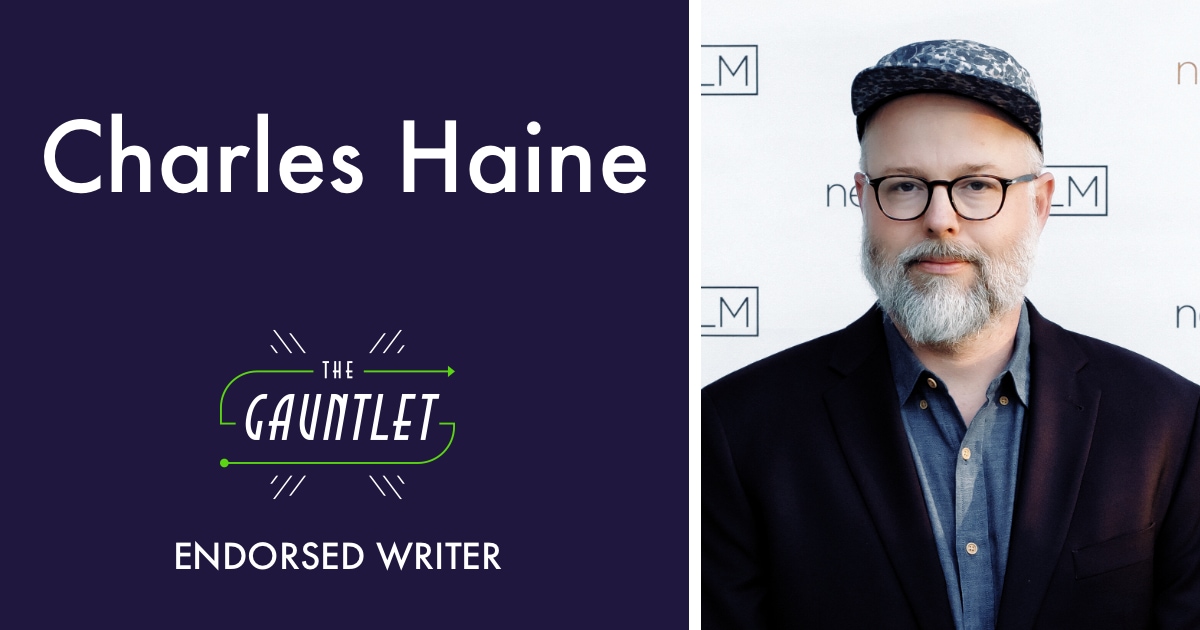
Charles Haine became famous in our minds by shooting a t-shirt cannon full of hair scrunchies into a crowded audience at the home of Shane Black as part of our event announcing the first slate of Gauntlet Endorsed scripts. His script, THE SCRUNCHIE MOVIE, is definitely a favorite among many of our readers. We wanted to know more about the man behind the script!
Can you tell us a bit about your background?
I moved to Los Angeles in 2001 and focused m...
 read full post
read full post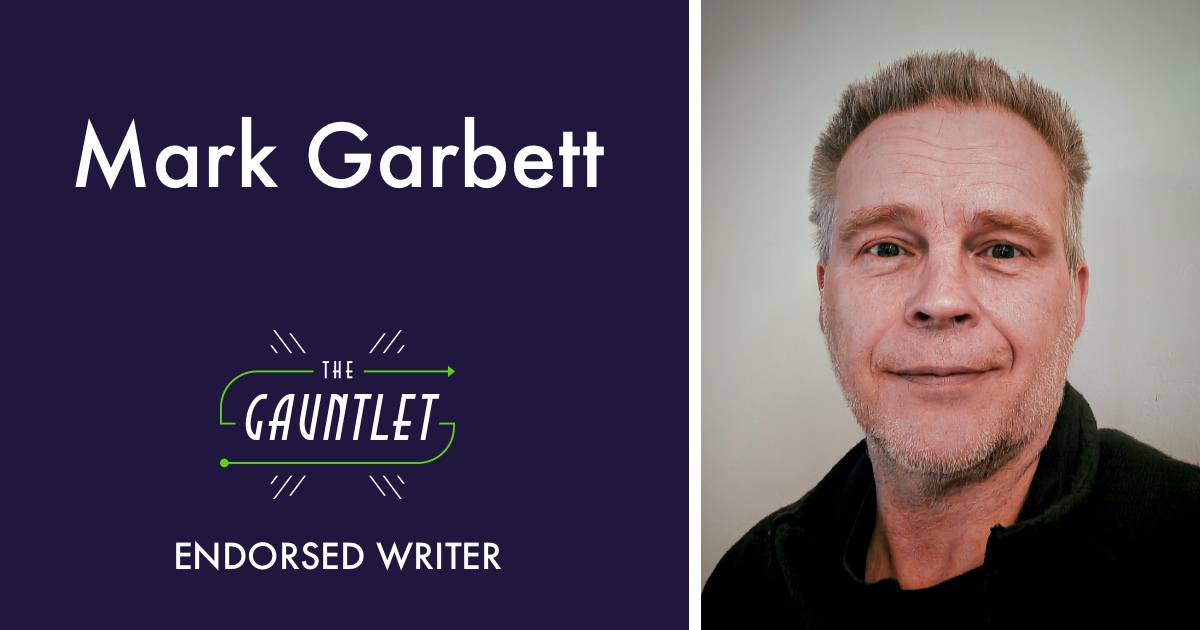
We're so thankful to have met Mark Garbett and to read his Gauntlet Endorsed script THESE DARK PLACES. This isn't his first rodeo, either. Mark has had multiple projects made, and it's not surprising as he knows how to craft an incredible thriller.
What made you want to become a screenwriter?
My dad was a professional soccer player, and after realizing at a young age I lacked the physical ability to follow in his footsteps, I was determined to pursue a ...
 read full post
read full post
Sining Xiang and Patrick Boyd wrote the Gauntlet Endorsed script THE GHOST WEDDING, a true standout in the Horror genre that is so profound it transcends its genre. Sining, himself, stands out above the crowd with an enthusiasm to direct, as well as write. His passion for the craft is inspiring and infectious.
Can you tell us a bit about your background?
I was born and raised in China. I was a model Chinese kid growing up. I received good grades an...
 read full post
read full post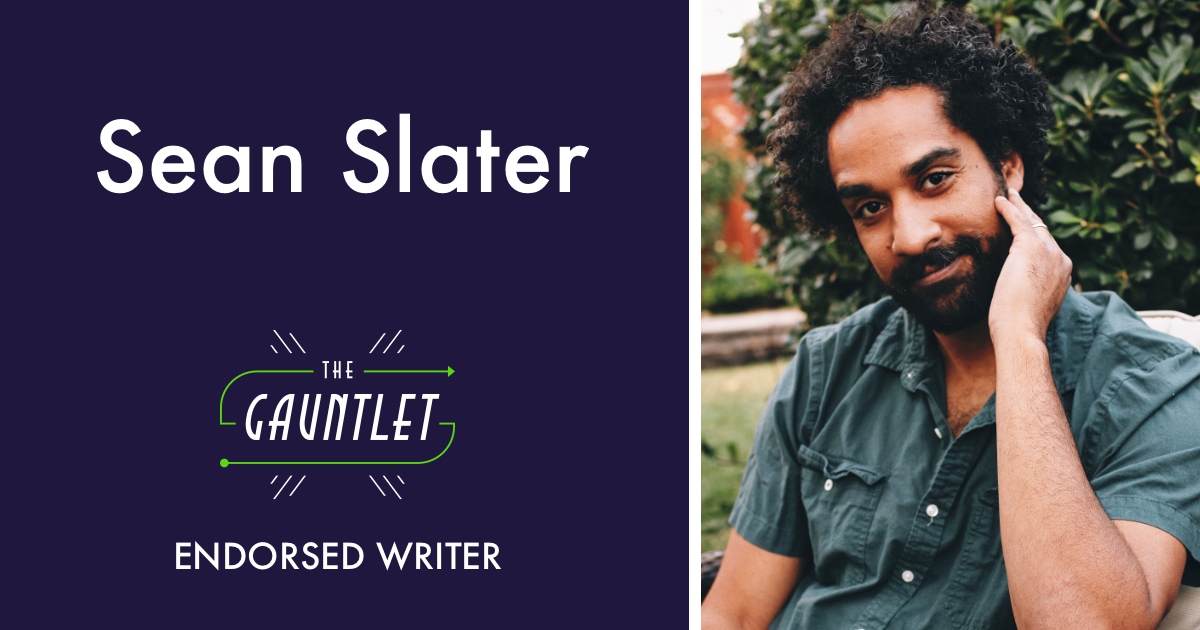
Sean Slater is a name you will definitely be hearing a lot more of. His script THE DEVIL AND DICK GREGORY has all the ingredients of being a major hit and was actually the first script that got a producer attached after we announced the slate of Gauntlet Endorsed scripts at our big private event.
Who is Sean Slater?
I'm an actor-writer-producer born in the UK and raised in Oakland, California. Some films of mine include narrative features such a...
 read full post
read full post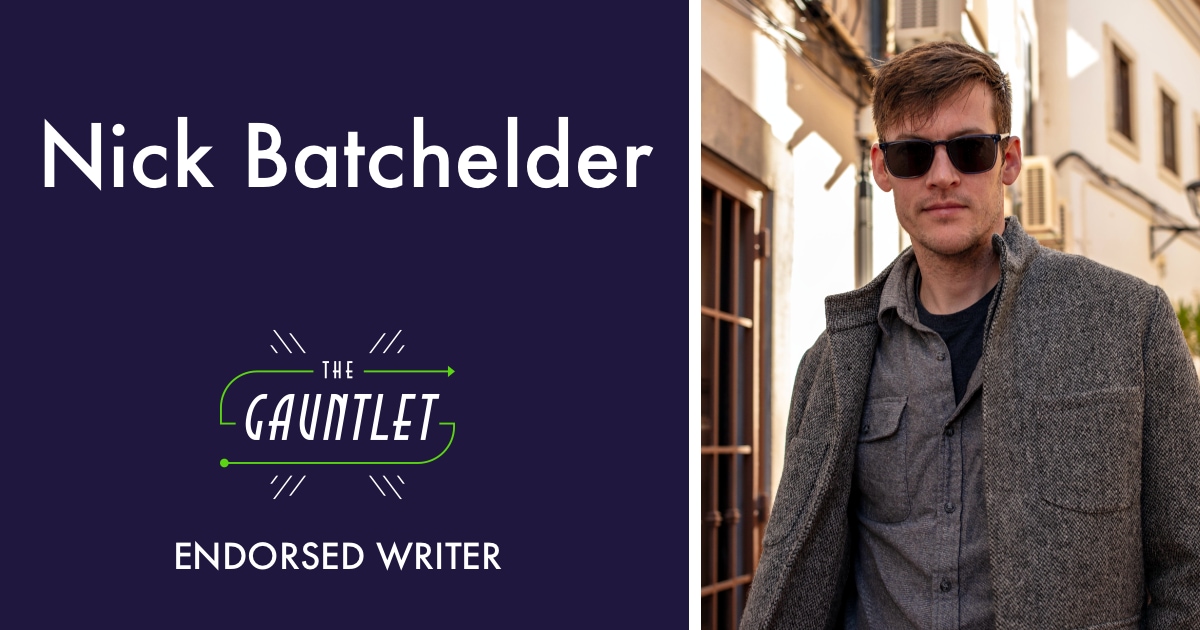
Nick Batchelder is the writer of WHILE OWLS SLEEP, an incredible true story about an A-team of LGBTQ heroes taking on the Nazis that truly deserves to be told. Nick recently shared with us some insights into his writing that we wanted to put out there.
Favorite movie theater experience?
Off the top of my head... The Searchers and Boogie Nights in 70mm, In the Mood for Love, Blue Velvet, Paris, Texas, Blade Runner, and Chungking Express in 35mm... the l...
 read full post
read full post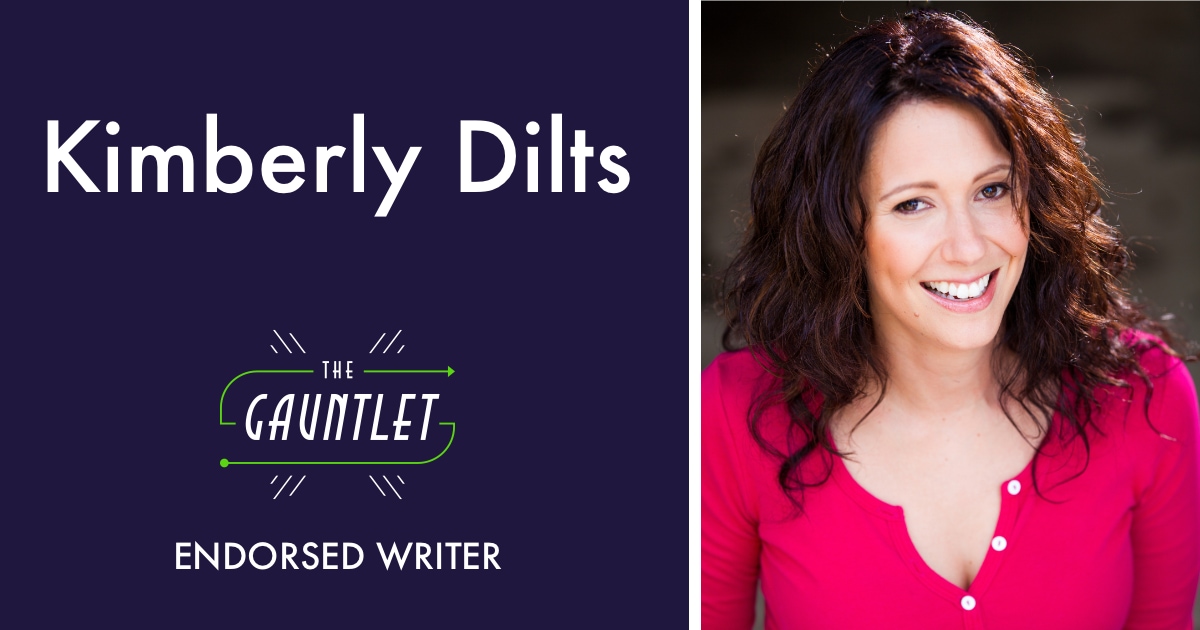
You can't get more authentic or likable than Kimberly Dilts. Add to that just how skilled of a writer she is, making the Gauntlet team laugh out loud with her script BREW. Fun fact: at our big event where we announced Kimberly, she hired a costumed medieval times barmaid to walk through the crowd and give tasters of beer brewed using the olden ways. A big hit, just as BREW is going to be!
Can you tell us a bit about you?
I started as a theater ...
 read full post
read full post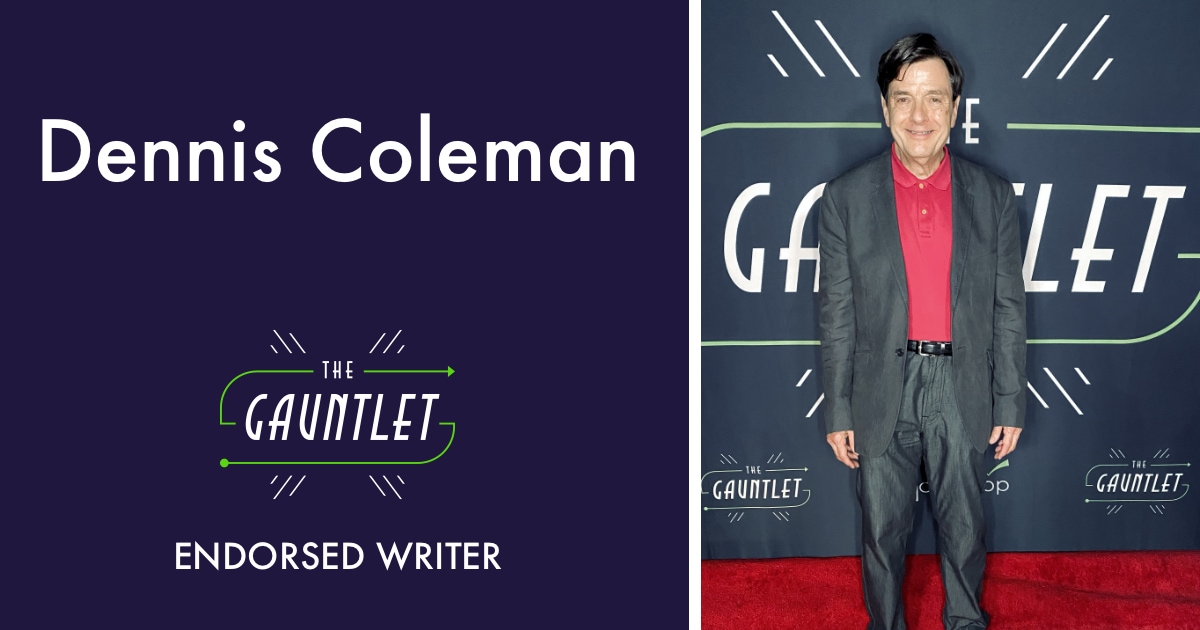
Dennis Coleman wrote APPROACHING SUNSET, an incredible script about the story behind the legendary film SUNSET BOULEVARD — a story steeped in Hollywood history and nostalgia. We are so proud to be able to showcase this script in our first slate of Gauntlet Endorsed scripts. We wanted to get to know Dennis a bit more with a few questions to share with you.
How about letting us in on some of your background?
I'm from Philadelphia, the son of a ...
 read full post
read full post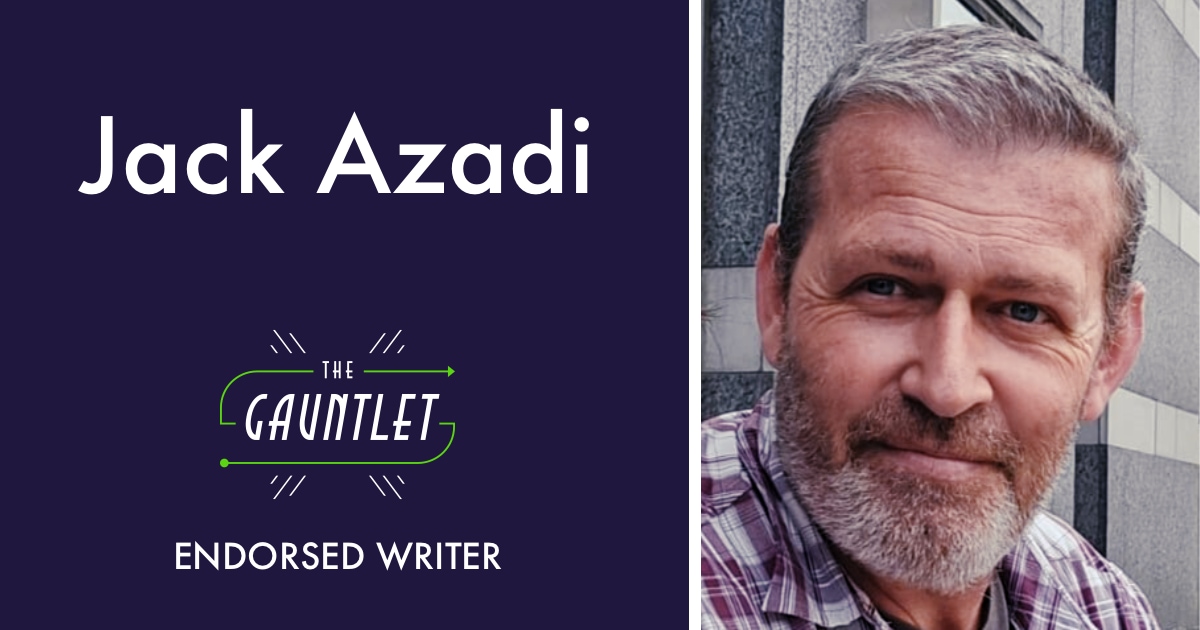
Jack Azadi is the very first writer to make it through the Gauntlet with his script FROM THE SHADOWS TO THE SUN. A truly badass script that got a reputation for making readers cry. It only reasons that Jack should be the first writer that we let answer a few questions to give us an insight into who he is.
Can you give us some of your background?
I began writing after returning home from fighting ISIS as a western volunteer in the Kurdish Army, a deci...
 read full post
read full post

When I started my internship at ScriptHop, I wasn't expecting to become a student of the screenwriting industry itself. My academic background is in computer science and data analytics. I've worked on research projects and toyed with machine learning models, but "breaking into Hollywood" was something I only knew about in the abstract.
Over the past month, I've researched how emerging screenwriters find their way into the industry. I've read industry blogs, scanned Reddit threads, watched TikTok breakdowns, combed through contest websites, and heard from writers who have been navigating this landscape for years.
Halfway through my first few weeks, the biggest piece of industry news hit: Coverfly, one of the largest online platforms for screenwriters to host scripts, enter competitions, and connect wi...
 read full post
read full post
Let's be real. It is an exceptionally difficult time in the film industry. A combination of strikes, pandemics, and fires has thrown a wrench into an industry that only a minute ago seemed engaged in a rare streak of throwing money at everything to see what stuck. The residuals that paid the bills of actors and writers for decades are drying up. It seems as if the pendulum has swung backwards, wallets have tightened, and film work seems scarcer than ever. And somewhere, a group of men in a boardroom, men who've never written a film or picked up a camera, have decided that the salvation of their profits and industry lie in the non-existent hands of technology with a cheeky humanoid name. Already major film producers are using AI-generated materials in theatrical releases. Silicon Valley has delive...
 read full post
read full post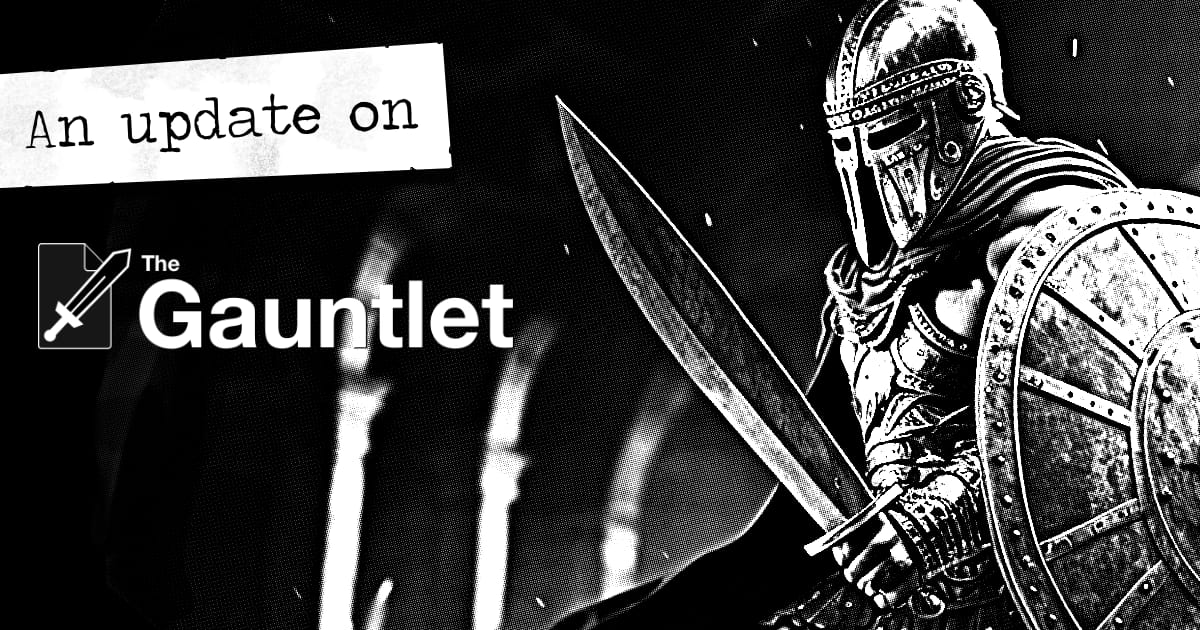
We're all on a rollercoaster lately. For Hollywood, the optimism of late 2024 feels like it's dwindled back to a place of uncertainty. However, I favor the positive mindset: The creatives we love are still here and still believe in creating next-level film and television. People will be trying new ideas and new business models. Necessity is the mother of invention and something will end up clicking to move things forward again.
This is EXACTLY what ScriptHop and the Gauntlet are about. We see an opening to create a new pipeline of creativity that will feed what rises from all the upheaval. If there's one thing we know, the demand for NEW original content will be high — especially as execs are learning that they can no longer bank on existing IP.
So, wit...
 read full post
read full post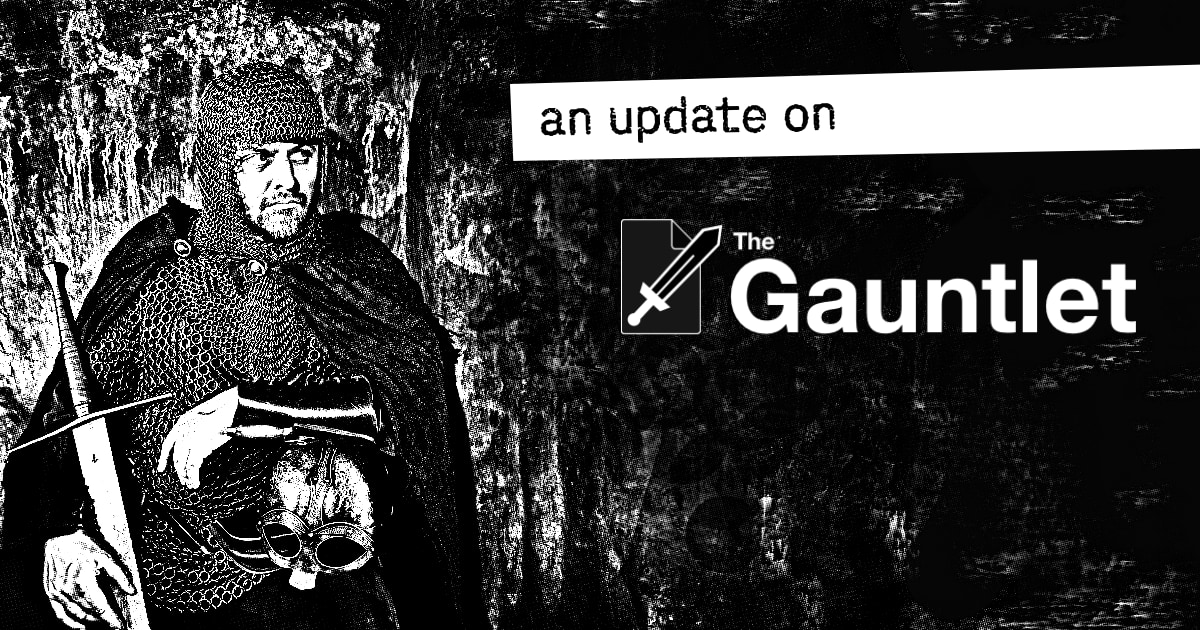
The holidays are fast approaching. Everyone in the industry will be clocking out this week or at least starting to wind down for the year. So, with that, it seems like a good time to share an update on ScriptHop's Gauntlet!
A better approach was needed for screenwriters. That's why both established screenwriters and industry readers came together to help us create the Gauntlet. We saw the painful and fruitless cycle of writers entering one competition after the next, just to see their careers going nowhere and receiving little to no feedback on how to improve. The majority not even aware that their work is mostly being judged by interns, low-level staffers, and underpaid readers that may end up only reading 4 pages of a script.
Then there's the existential, seemingly unstoppable e...
 read full post
read full post

A Film Student's Perspective
Notorious in the filmmaking realm, ChatGPT has proven lethal to creative integrity. In just a matter of seconds, the AI platform will spray out the first answer that it can get its machine's hands on...
Yawn. This is old news.
It's no surprise to me, a college student, that schools have tripled their precautions against the modern-day source of plagiarism. It's in every syllabus for a reason.
Now. What if ChatGPT could be stopped...by other AI systems?
I recently explored ChatGPT's capabilities. I wanted to know where its loyalty stood within the tech universe. Would all the AIs of the world destroy each other if it came down to it? What if they all turned on humans and stopped answering our hungry minds?
Spike Jonze's...
 read full post
read full post

I'm excited to announce a new product that the ScriptHop team has been working very hard on over the last 17 months. We painstakingly fixated on every possible detail.
Our goal was to solve the problem most screenwriters face: getting their script read by someone who matters — someone who can make something happen for that script. Adding to that, there's also the great Hollywood conundrum: how many reps, execs, and producers does it take to read a script? None — their assistants do it.
ScriptHop's new product is a gateway into the industry that works with this dynamic. It grants screenwriters access to a pool of professional readers that also work for well-known agencies, studios, and production companies. These are the analysts who matter — the true gatekeepers o...
 read full post
read full post
Sit down, good screenwriter. We need to talk about your packet's Highlights section.
Remember that a major challenge for writers (especially those seeking to charm Hollywood) is keeping a reader's attention. Whether a script analyst, an agent, or a high-ranking exec, your reader is most likely distracted, time-starved, and so overburdened that they're looking for reasons to dismiss your project so they can turn to the next prospect. Don't let them. Keep them intrigued, keep them curious, keep them reading.
Okay, but how? Apart from obvious boons like solid writing and presentation skills, you might have an underused tool in your arsenal: the Packet's Highlights.
... read full post
read full post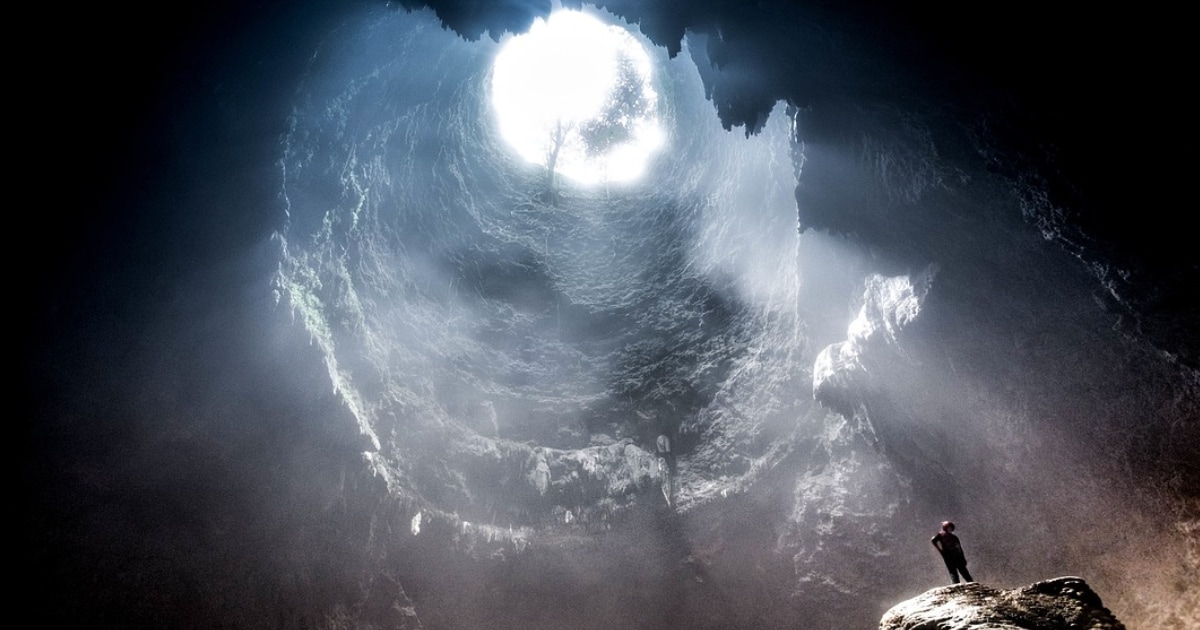
"Worldview." Simply put: a fundamental perception. Not a new concept by any means, yet when applied to the art of screenwriting it can lead to a previously untapped mastery of theme and subtext in the tales we writers craft. To undertake this journey, first we are tasked with harnessing the most primal potentially debilitating emotion there is: Fear. Yes: capital 'f.'
We draw subconsciously from certain elements of worldview when we craft our characters' journeys in a screenplay. We chart their course, drawing from our life's own treasured belief systems. The worst examples of this type of writing can often elicit dreaded phrases like: "it was a little too on the nose." When we dare to dig deeper into the themes that reappear in our work, Fear begins stalking us — dissuading us from pressing on, keeping the necessary the...
 read full post
read full post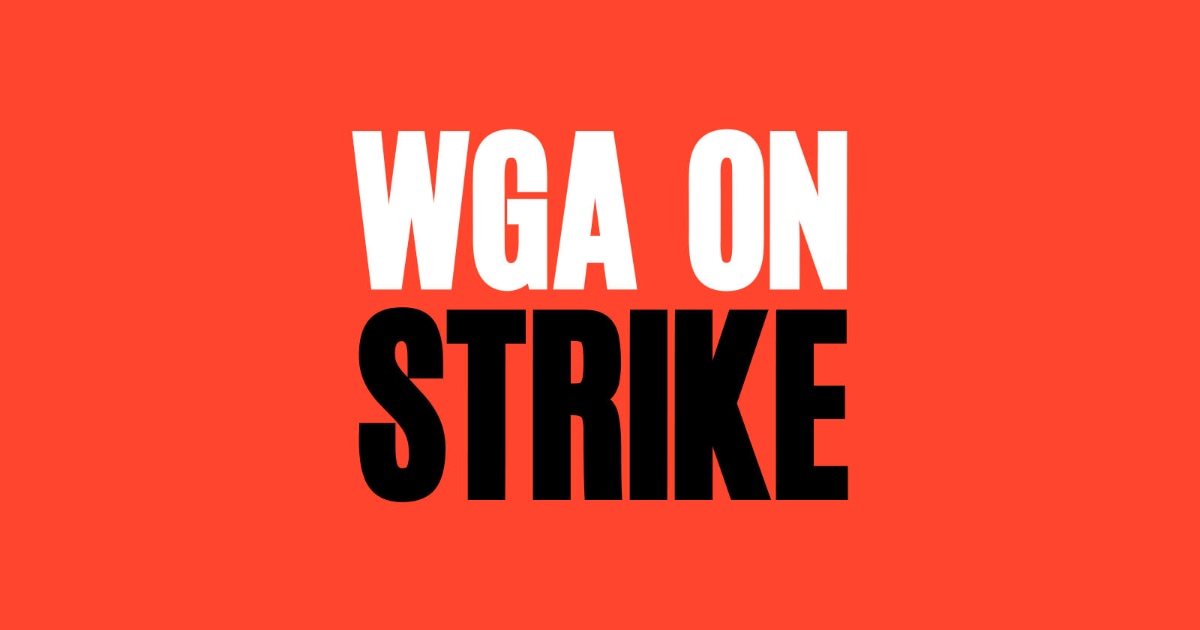
Writers are the nucleus of Hollywood — they're where everything in movies and tv starts.
Without writers, storytelling becomes bland, repetitive, and soulless. They are the backbone of the film and television industry. For their integral role in modern-day storytelling, writers should be fairly compensated.
It is time to value writers.
In the wake of the WGA strike, ScriptHop fully supports and stands in solidarity with the writers who tirelessly and passionately create films and television shows for all of us to enjoy.
We also support the WGA's pause on pitching during this time. Due to ScriptHop being a pitching platform through our product The Packet, we will not be charg...
 read full post
read full post
You know that series bible or pitch deck you've been on the fence about creating because you think your script is brilliant enough on its own to get Hollywood biting? Countless writers are now discovering that if you build it, it won't just ride shotgun as a marketing booster of your project's business life. It provides a major fringe benefit. Whether you've made an artifact in the form of a minimalist pdf-pamphlet or a more in-depth or interactive deck, the act of doing so performs a litmus test on your script itself. It determines whether your script is supported by the skeletal structure of an actual story or whether you've merely been spray-tanning dialogue and random events in a hundred page sprawl.
In fact, series bibles and pitch decks can b...
 read full post
read full post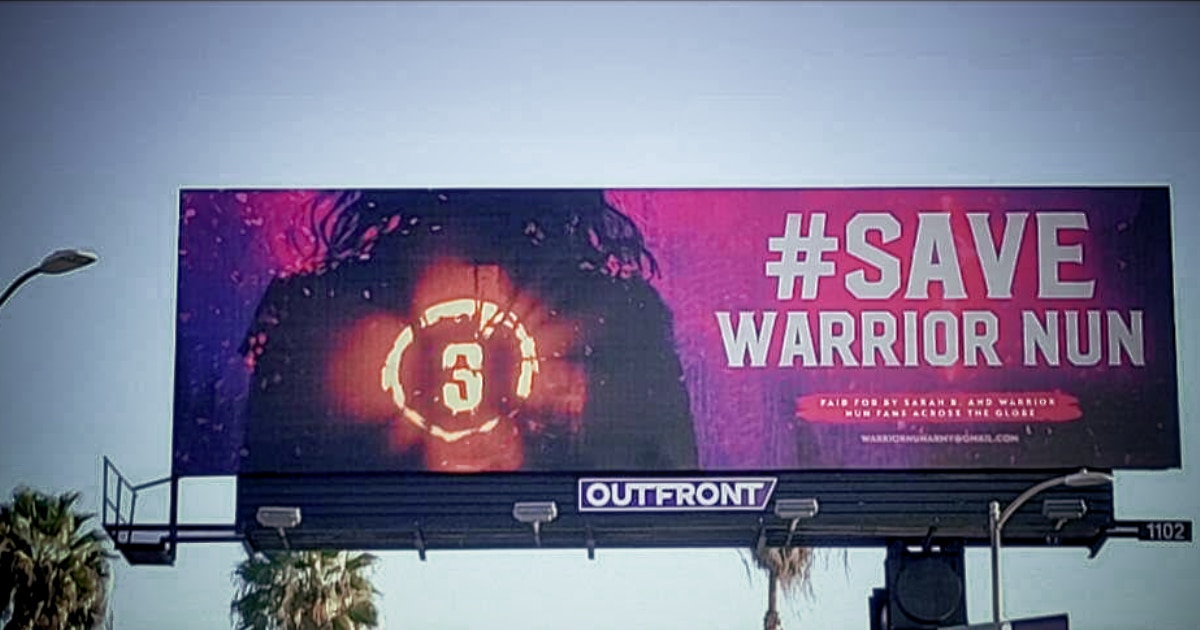
One of the best aspects of running ScriptHop is that I get to work with incredibly talented people bringing amazing content to life. It's exciting to hear about a new film or series concept and see it crawl its way, despite enormous odds, to production. There's a positive energy behind it, passionate people making it all happen, and an audience that awaits.
Today I feel compelled to write about the other side of the coin — the unfortunate, untimely demise of a GOOD television series... via an algorithm. Whether it's a show that we looked forward to watching before it even aired or it grabbed our hearts when we discovered it later, a bond was formed. And then, we get the abrupt news, either from a headline or a WTF text from our friends, that it's now gone. There will be no memorial service and resurrections are ...
 read full post
read full post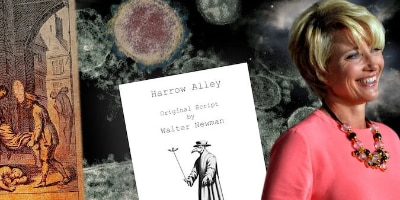
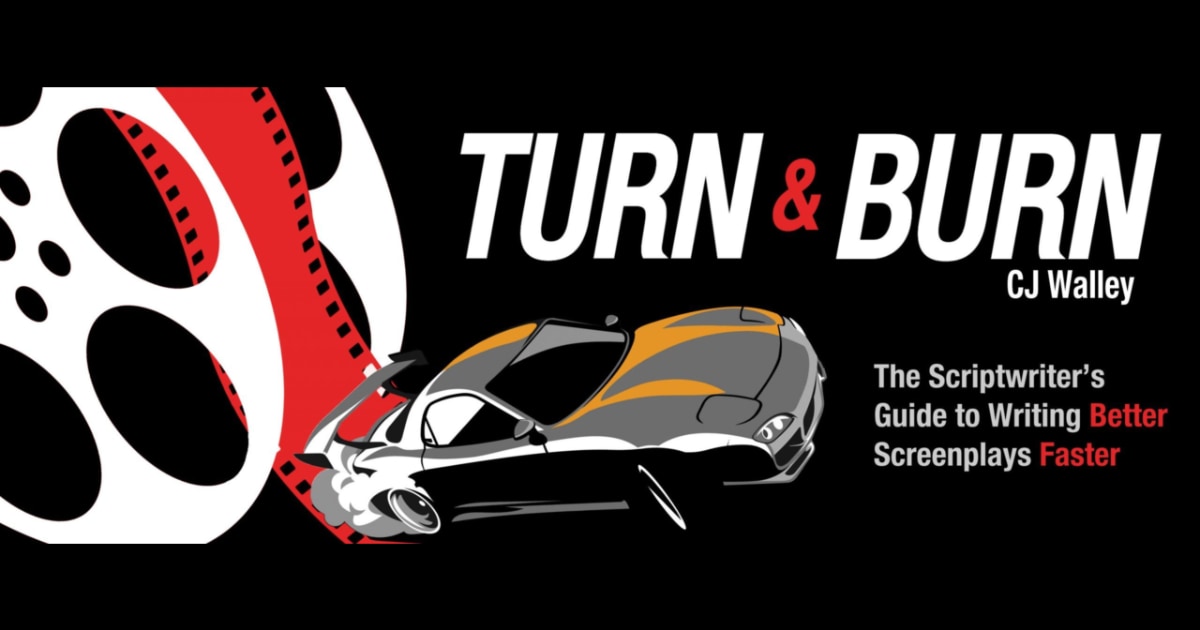
Like the work of some ninja-philosopher hyphenate, C.J. Walley's Turn & Burn sneaks up on you from its cover, distracting you with its bombastic title, then it reveals itself to be one of the deeper manuals on screenwriting out there. Turn & Burn may sound more like the title of a potboiler thriller than it does a screenwriting how-to. But it makes sense that Walley, a screenwriter who writes with confessional honesty about his own challenges in the business, would reflect on the testosterone-fueled movies that fomented his career and informed his own self-described evolution. Like a plot twist, the title proves to fit neatly into one of his deceptively simple maxims — one that's as surprisingly useful as the rest of the book.
Turn & Burn starts from an unorthodox p...
 read full post
read full post
An exhibition, as defined by Merriam-Webster, is "a public showing (as of works of art, objects of manufacture, or athletic skill)." We associate an art exhibition with paintings, photography, sculptures, and we interact with their presentation by walking through a museum space — looking (sometimes gawking), discussing, and connecting with these various mediums. Art is influential, multidimensional, and personal.
Film is all of this and more, and it depends on a similar exhibition space. Scripts may be written, but they're the culmination of text for a visual medium, and whether they have the good fortune to make it through Hollywood's filters to the screen shouldn't be the only thing determining their value; the Hollywood lottery shouldn't be a script's only opportunity for consumption and appreciation. It's time s...
 read full post
read full post
Debate seems to roil writers over what supplemental materials, if any, should be sent along with their scripts. Being both a writer and someone who has worked "on the other side" in the agency world, I've seen the issue from the trenches and through the lens of the middleman. For those short on time, let me cut to the chase and respond to the question: Should you have a pitch deck (a.k.a. "lookbook") or series bible ready to send with your script? The answer is: yes.
I don't have to look far for evidence of this necessity. Just a week ago, an employee at my company was signed at CAA and went out with one of her projects to a big production company. This company was excited about her project but immediately requested a series bible. (Disclaimer: She used ScriptHop to create her series bible and it resulted in a more impressi...
 read full post
read full post
It's hard to think of a task more daunting and thankless than deciding when and whether to send screenplay revisions to an agent or rep. Here's what the coming "live-link era" could soon mean for screenwriters.
It's no secret. Even writers lucky enough to have representation face a formidable obstacle course when going out with original content. Even if you're on the A-list — literally on fire — you'll never escape the first law of thermodynamics: "Hot things always cool unless you do something to stop them."
There are numerous complex reasons for this daunting cooling process — or entropy — that have to do with the quality of the work, as we...
 read full post
read full post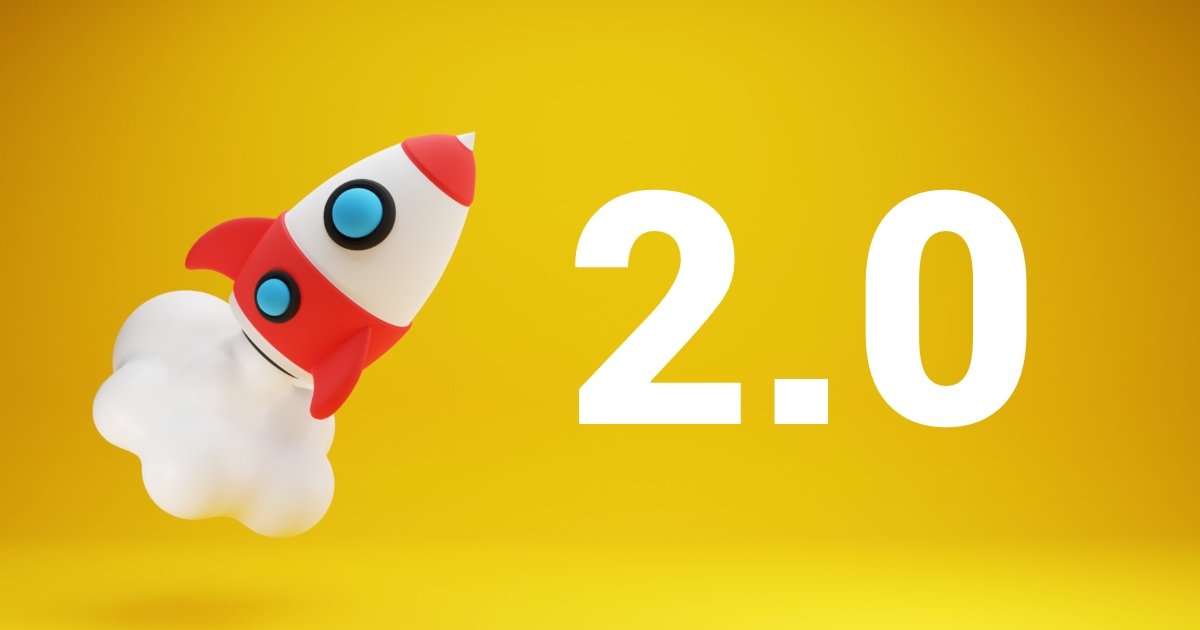
Myself, and the entire ScriptHop team, are happy to announce the release of version 2.0! Almost an entire year in the making, v2.0 is 2X what the previous version was. For this release, we focussed on 3 things:
Television
While it worked for a series, the original version of ScriptHop's Packet was mostly suited for pitching a feature. Considering that bibles are still somewhat undefined, we brought together A-list writers and industry decision makers to determine what really works and baked that directly into the Packet. This includes new sections like 'What It Is', 'The World', 'Series Outline', and more, all with sub-sections that expand so readers can dive in to learn more where they are interested, rather tha...
 read full post
read full post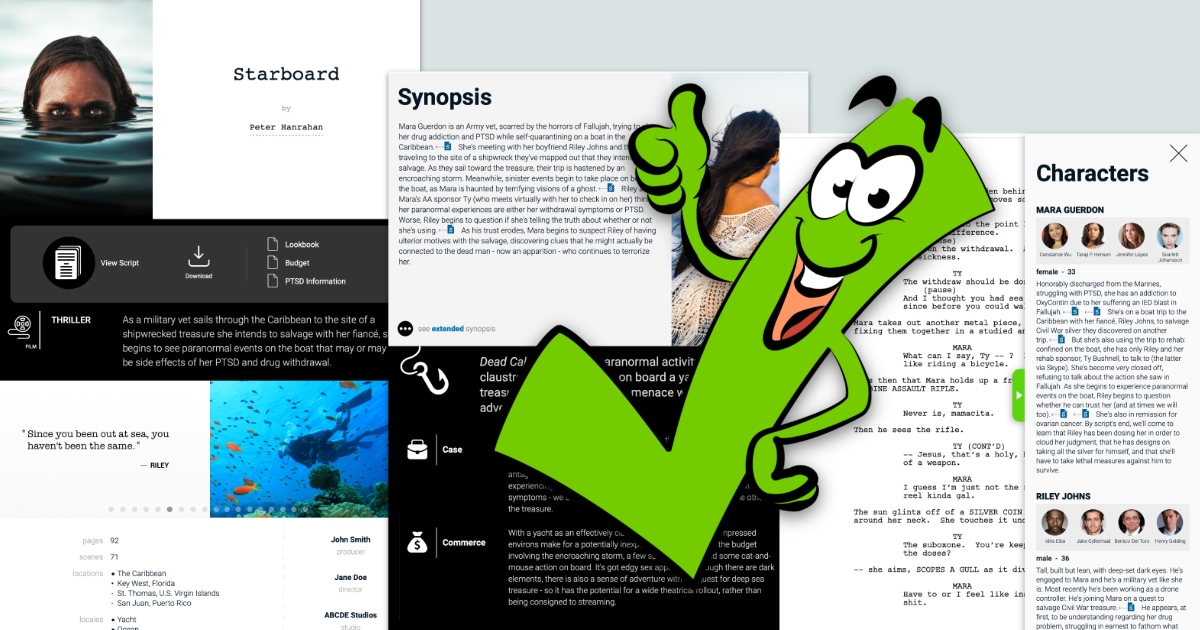
We at ScriptHop quietly started something a couple months ago as an experiment. Even though our platform helps writers craft their pitch and bundles everything that agencies, studios, and production companies need, that doesn't always mean that every Packet is perfect. Even A-list writers struggle with their pitches at times or can overlook errors that a new set of eyes might quickly see.
That's why we implemented a FREE review feature within ScriptHop. It's a very simple process. Once your Packet has progressed far enough, an option to request a review of your Packet will appear. Clicking that link and agreeing to the process will have our team reviewing it usually within 48 hours. WE DON'T READ THE SCRIPT or make any judgements about your story. Our team simply makes sure that you don't have any major errors and that the ma...
 read full post
read full post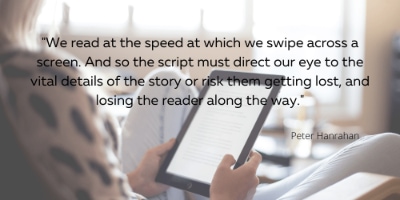
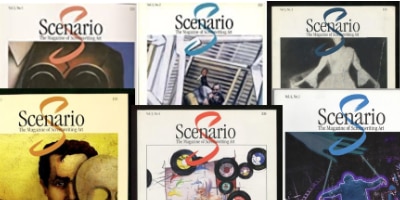
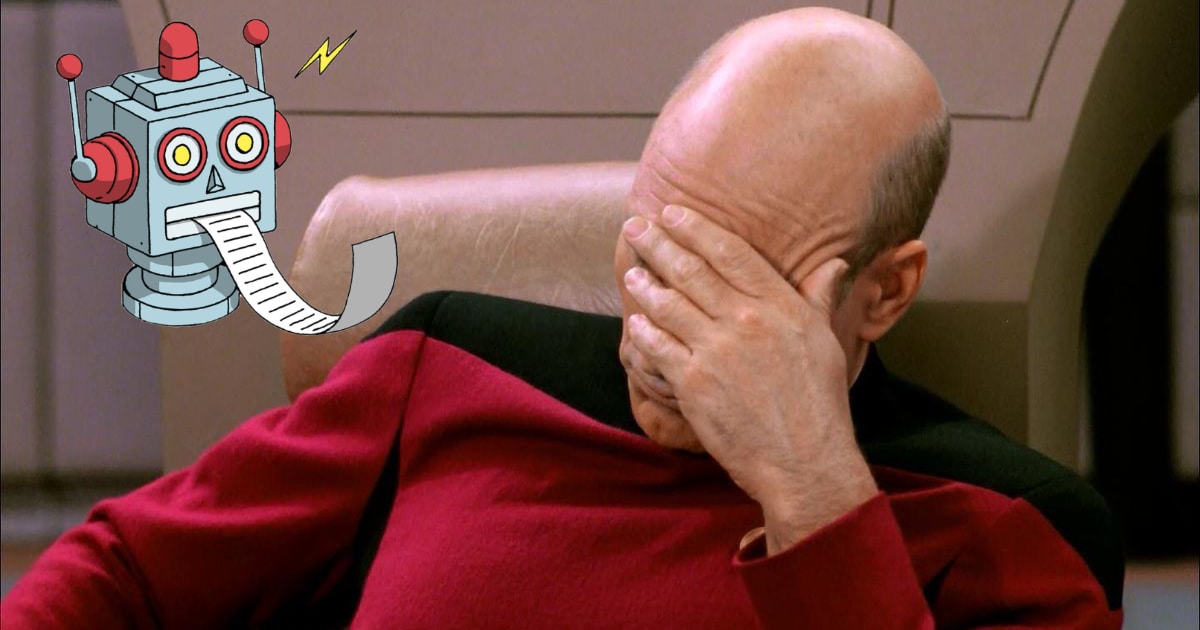
There are a handful of script reading AI companies out there that claim to be able to find the best scripts or the big Box Office performers. Each year, a new article in either tech or entertainment news seems to introduce a new company that claims to be able to do this, so the list grows. All I'll simply say about them is... that isn't us.
However, starting out, we did create an impressive AI that can read a screenplay and tell us something of the story and its characters. I'd actually put it up against any of the Box Office predictor guys for doing that. In less than 5 seconds it can read a script and give us a lot of info. It could even generate a very simple logline, something like "A father and son struggle to survive against an alien invasion." Pretty slick, right?
In 2016, ...
 read full post
read full post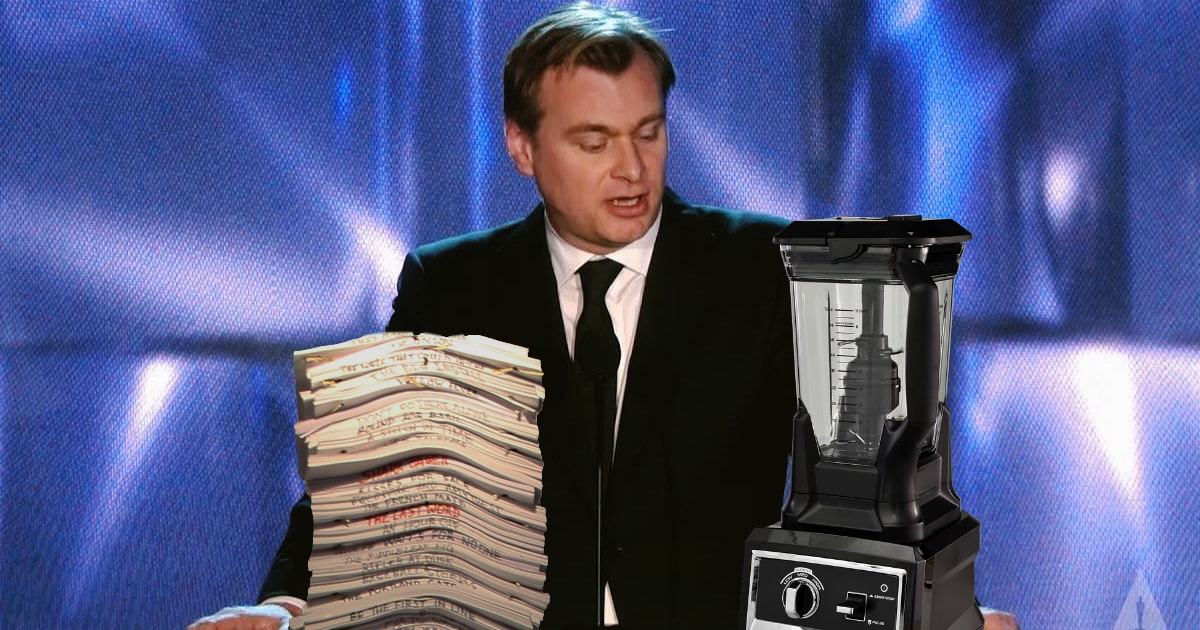
TIME. That's the iceberg facing every screenwriter steering a titanic dream. It confronts your intended reader, too, in the form of an insurmountable stack of scripts melting away the attention they can afford to pay your piece of their content glacier.
While I was managing UTA's Story Department, I can't count the number of times an aspiring writer friend held forth that some bigwig they'd met at a party would read their script and beknight it for its quirky charm, or taut craft, "especially when they get to the twist in act three!" The hopeless faith they had in that shark's devotion to literacy — that it would drive executive curiosity to stray to a random non-client, and focus long enough to get to act 3 — is a lovely conc...
 read full post
read full post